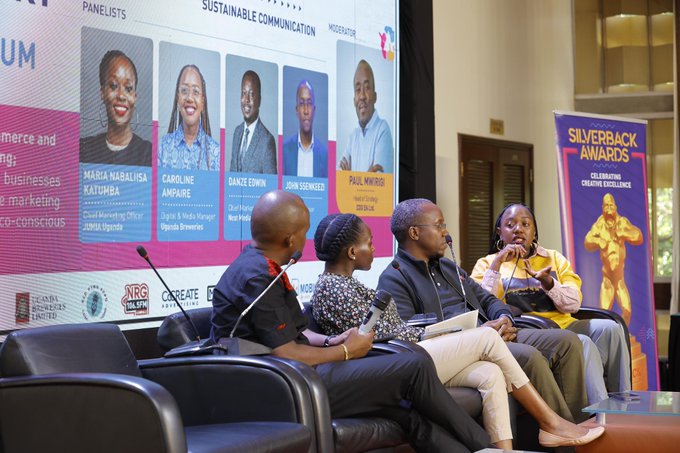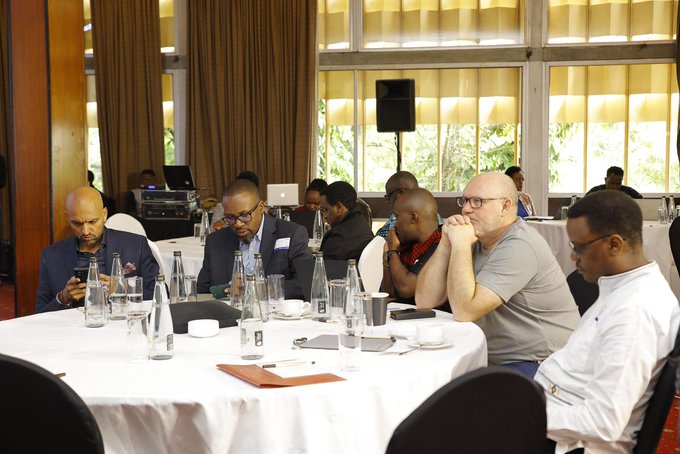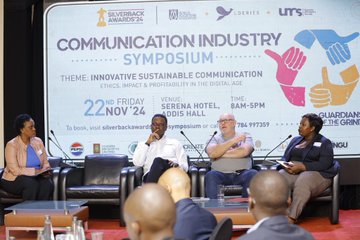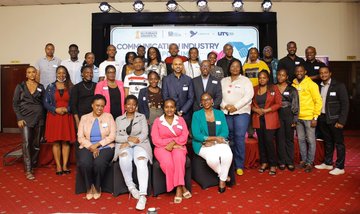Ugandan Marketers and Advertisers have been advised to observe brands globally and come up with innovative ideas to take Ugandan creativity to the world.
The call was made by Preetesh Sewraj, the CEO of Loeries, during a Communications Industry Symposium held at Serena Hotel, Kampala on Friday, November 22, 2024.
“Invention is coming up with a brand new idea while innovation is looking at existent work and thinking of how to build it to be better and improve it,” said Preetesh while sharing his experiences on innovation and quality.
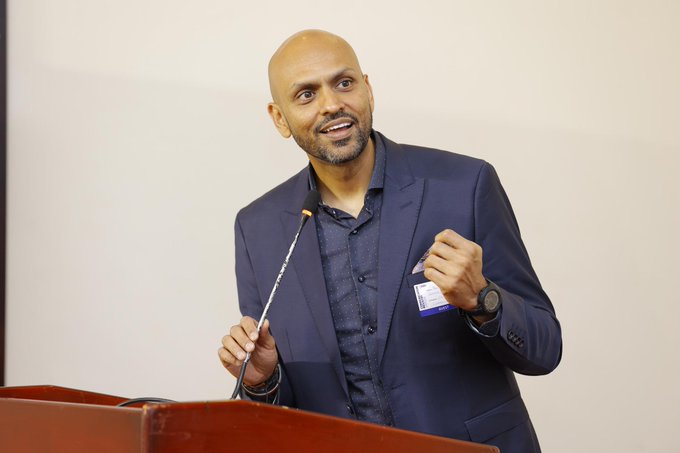
“You must be prepared to go to a space that scares you. Within failure lies learning. Our goal as an industry should be if we are going to fail, let’s fail faster so we can learn faster,” he stated. He urged communicators to think differently and learn how to tell stories differently.
Uganda Advertising Association (UAA) President, Rommel Jasi, urged communicators to communicate ethically, impactfully and profitably in the digital age. He emphasised the need for marketers and advertisers to be change makers.
“All scientific civilisations were built on rivers. The Amazon, the Nile, the Euphrates, etc. The river of our generation is the digital inflow and outflow of things.”
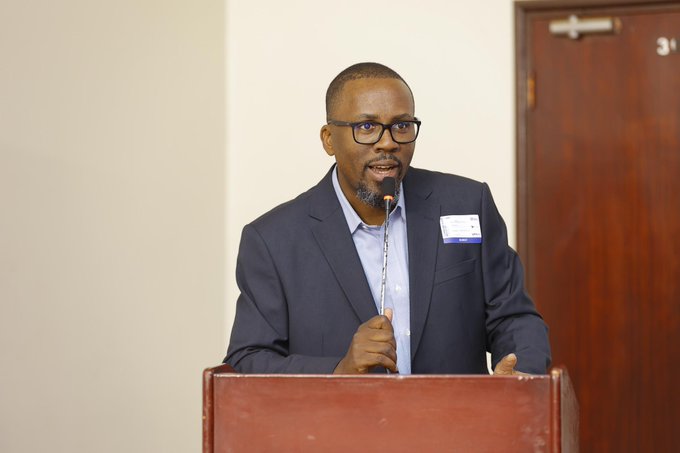
Innovative Sustainable Communication
John Ssenkeezi, Digital Lead at National Social Security Fund (NSSF), highlighted merchandising, fulfilment and customer value management as the three main points that e-commerce platforms need to consider to upscale.
“Right now, we have an air pollution issue in this room but until we measure how bad or how okay it is, we can’t find a solution to it. So, e-commerce platforms need to listen to their data, because from there, they will find three areas of improvement,” he stated.
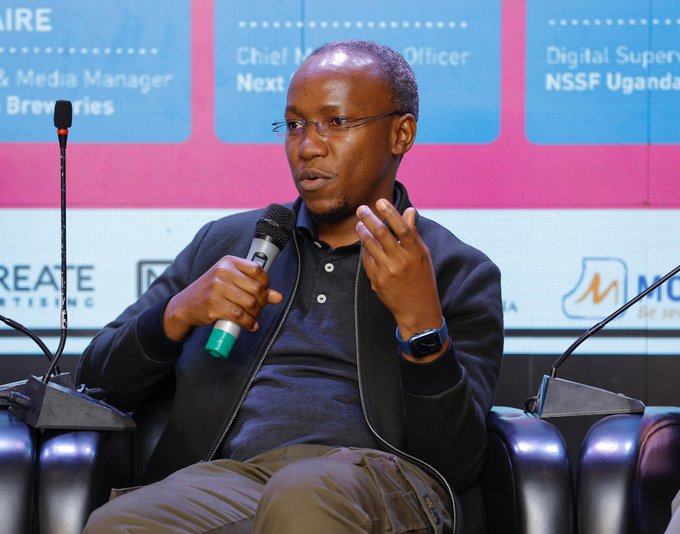
Maria Katumba, Chief Marketing Officer at Jumia Uganda, said e-commerce should be a strong enabler of sustainable marketing.
“The challenge remains with the fact that we are not yet at a comfortable level where we can throw away traditional means of advertising with only 27% adapting to digital,” she noted.
She said Jumia Group created products like Jumia Advertising with over 2 million eyeballs on the site every day and invited UAA to come on board and utilise the traffic that comes on the platform to reach their target audience.
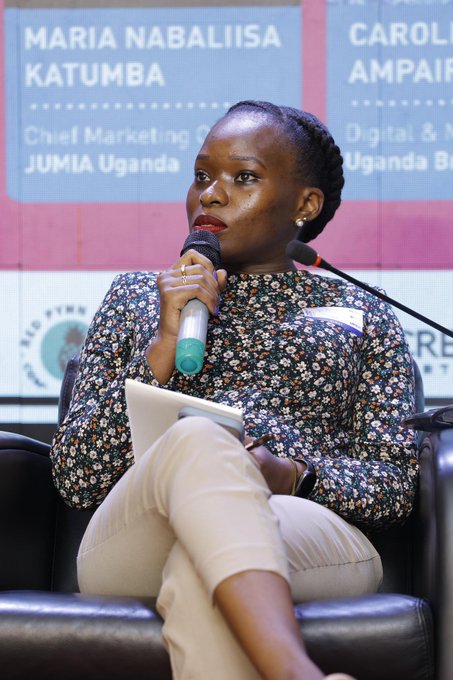
“We see that a lot of business in Uganda is concentrated within Kampala. We have the majority of our working population here. We have the majority of the population that is tech-savvy,” she added.
She said e-commerce is, for Africa and Uganda, an opportunity to serve the people who cannot come to the Central Business District (CBD).
“There is a lot of demand for quality products, services and good prices. With this comes a big opportunity to do that without necessarily opening up shops or physical presence in the rural areas. We are operating purely online which gives us a huge opportunity to scale at a speed that wouldn’t normally be possible if you had to do it offline,” noted Maria.
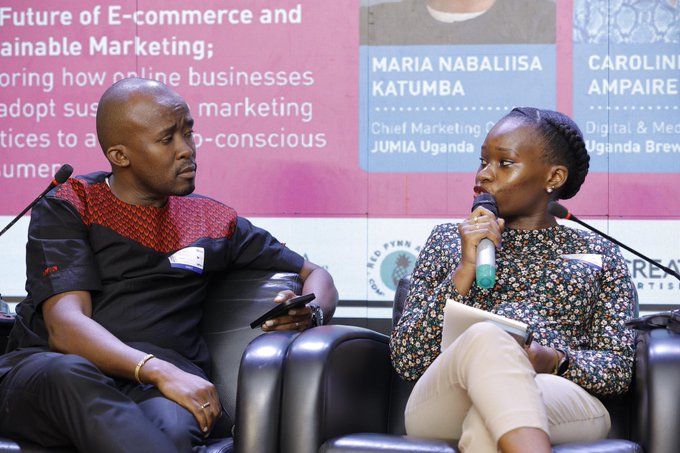
Caroline Ampaire, Digital and Media Manager for Uganda Breweries Limited said wastage around billboards is coming up. She cited the UBL Diageo One app that has revolutionised Diageo’s business and contributed 25% in net sales within the first year of its operation.
“As Uganda Breweries, we realised farmers need these tarpaulins and we also work with an NGO that repurposes the tarpaulins into shelters. Such collaborations are crucial to managing advertising waste.”
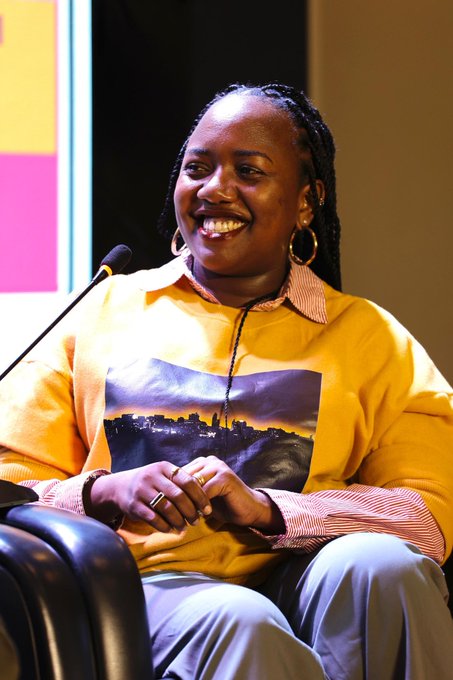
Ethics in Communications and Marketing
Paul Ekochu, Chairman of the Uganda Media Council, tipped communicators on broadcast and advertising standards. The Uganda Media Council receives complaints and addresses them with guidance of the law.
“The regulator has to become the umbrella and not the sword in order not to kill innovation in the creative space,” he said, adding that identifying breaches of ethics in advertisements comes not only from regulators but also consumers.

Ekochu encouraged marketers of the media outlets to continue working within the regulations, noting that UMC regulates the conduct and promotes good ethical standards and discipline of journalists and media outlets.
David Case, founding partner of TBWA Uganda, said: “If it is something you would be ashamed to share with your parents about, then you shouldn’t air it.”
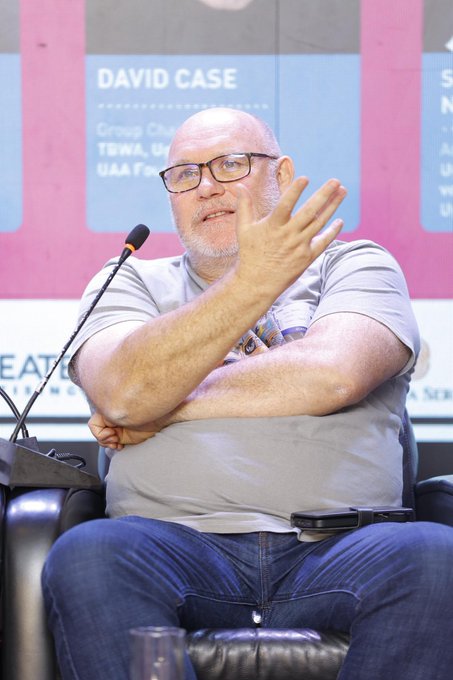
Sandra Juliana Nassazi, Advocate of the High Court and law instructor at Uganda Christian University (UCU), cited Artificial Intelligence (AI) deep fakes saying there are copyright laws in Uganda to protect the consumers.
She encouraged all agencies to have legal personnel before drafting contracts for influencers or even using people’s photos on billboard adverts.
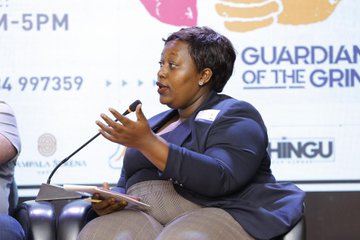
“This is crucial in protecting your brand from being sued and suffering serious financial consequences. How many people are following up with these intrusive or spam messages from telecoms? But for sure, the law does exist. I will also stretch it to the anti-homosexuality act in Uganda.”
She added: “We don’t recognise anything in that nature. So, we shall not tolerate any advert, anything that is in one way or another promoting homosexuality. The act is very clear. So, there is a vast majority of the laws that do regulate or come in to cover that ethical dilemma.”
